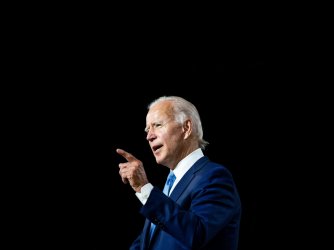Table of Contents
FIRE Receives Response from UMass: Code Changes Forthcoming?
Last week here on The Torch, FIRE's Samantha Harris discussed our concerns about proposed changes (.PDF) to the University of Massachusetts Amherst's (UMass') Code of Student Conduct. These concerns, detailed in an urgent letter FIRE sent UMass on April 22, focused on the broad bans on protected speech presented by the revisions.
Samantha detailed our problems with UMass' proposed changes:
First, a proposed introduction to the Code sets forth a set of institutional values including "civility," "social justice," and "social responsibility," and states that once students "choose to accept admission," they are expected to "uphold the above stated values." As FIRE pointed out in our letter, a public university categorically may not, consistent with the First Amendment, "require students to adopt a specific set of ideological values as a condition of membership in the university community." As the Supreme Court famously held in West Virginia State Board of Education v. Barnette, "If there is any fixed star in our constitutional constellation, it is that no official, high or petty, can prescribe what shall be orthodox in politics, nationalism, religion, or other matters of opinion or force citizens to confess by word or act their faith therein."
The draft report also recommends adding a prohibition on "bullying" to the Code, and defines the term so broadly as to encompass a great deal of protected speech. Among other things, bullying at UMass would include speech or expression that causes "emotional harm" to its intended victim. Emotional harm is an extremely vague term that could mean anything from severe emotional distress to mere hurt feelings, so students reading the proposed policy would have no way of knowing what is prohibited. Moreover, the policy's lack of any objective component-a "reasonable person" standard-means that speech and expression would be punishable so long as the victim, however unreasonably sensitive, feels harmed. And, as FIRE's letter notes, even most speech that would cause a reasonable person to feel upset or distressed is still protected by the First Amendment.
Along the same lines, the report recommends adding a prohibition on "relationship violence," which-in addition to prohibiting actual violence-also prohibits any "emotion [sic] and psychological harassment." By prohibiting this type of "harassment" without defining the term in any way, this policy would infringe on even more constitutionally protected speech and expression.
Given the seriousness of our concerns, we are pleased to report that we received an encouraging response from UMass Associate Chancellor Susan Pearson via email yesterday. Associate Chancellor Pearson wrote:
Dear Ms. Harris,
Thank you for providing your perspective on the proposed changes to the Code of Student Conduct. The Commission met last Thursday and gave very serious consideration to your perspective, as well as those of others who shared their views with us. We made a number of changes, including changes in the proposed introduction and in the section on Civility and Community Standards. We have now submitted a final report to Vice Chancellor Kim, who will consider whether to accept our recommendations.
Sincerely,
Susan Pearson
Associate Chancellor
While it is of course too soon to tell if FIRE's input has been heeded, we thank Associate Chancellor Pearson for her response, and we thank the Commission for their consideration of our concerns. We look forward to seeing the recommendations. Of course, we'll keep you posted here on The Torch.
Recent Articles
FIRE’s award-winning Newsdesk covers the free speech news you need to stay informed.

TikTok legislation sets grave precedent for free speech

FIRE joins animal advocates, free speech groups urging Ninth Circuit to affirm ruling that allows undercover audio recording

Louisiana Tech earns top rating for free speech
